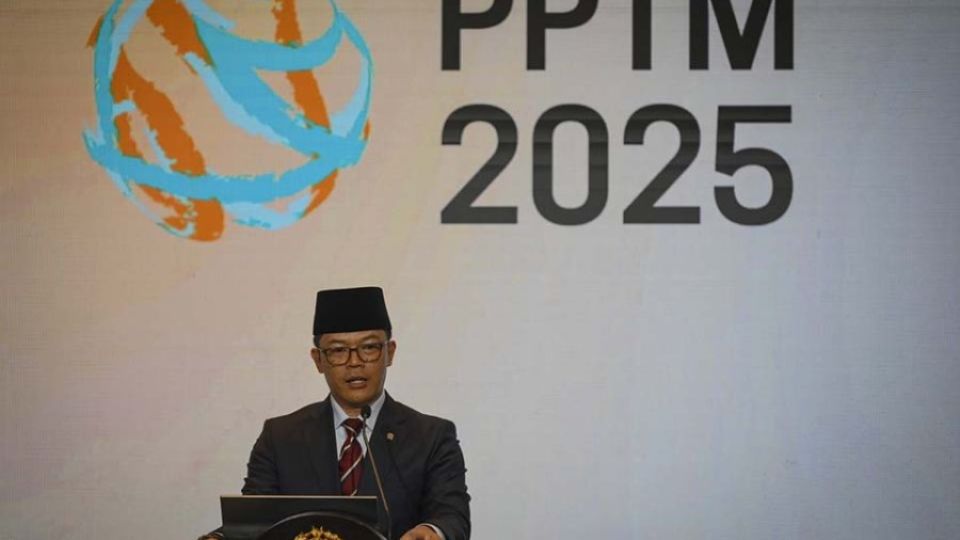January 13, 2025
JAKARTA – One of the highlights of Foreign Minister Sugiono’s first foreign policy speech late last week was the prominent display of images of Indonesia’s first president Sukarno as a backdrop for the event.
For those attending the speech, one of the most memorable scenes was when the image of Sukarno with global south leaders like then-Indian prime minister Jawaharlal Nehru and then-Egyptian president Gamal Abdel Nasser during the Bandung Asia-Africa conference in 1955 was projected on stage.
Sukarno, a nationalist hero for post-reformasi politicians, is an avatar for Indonesia’s muscular foreign policy and the projection of his image in Sugiono’s first major foreign policy speech served an obvious purpose.
It is now clear, especially after the formal accession of Indonesia into the BRICS grouping only two days before the annual speech, that President Prabowo Subianto wants to raise the profile of Indonesia on the global stage, to play in the big league and if necessary to punch above its weight.
Minister Sugiono’s speech last Friday outlined some major initiatives that mark a radical departure from the transactional approach of Prabowo’s predecessor Joko “Jokowi” Widodo.
The biggest move of course was the decision to join BRICS, a bloc of regional powers which include Russia and China, a move that Sugiono does not see as a deviation from Indonesia’s free and active foreign policy.
In the speech, Sugiono said Indonesia’s presence in the group “could be the bridge for countries in the developing world and in the Indo-Pacific as well a conduit to prevent geopolitical and geoeconomic tensions.”
Also outlined by the foreign minister was the plan to join the efforts to reform the United Nations and international financial institutions to make them “fit-for purpose” and to prevent them “from being dominated by rich nations”.
On the international trade front, the minister aired another grievance over unfair practices in international trade and said that Indonesia would push for a fairer trade.
“In our economic diplomacy, we cannot sit still. But we should respond to the practices and any economic policies that are unfair, including [those unfair] toward Indonesia’s key commodities. To this end, we will pursue a more inclusive and fair global economic architecture that makes sure the voices of the developing nations are heard,” Sugiono said.
Sugiono also made a pledge in the latter part of the speech to expand Indonesia’s existing defense partnerships and step up its handling of strategic issues impacting its sovereignty, including maritime security and the safety of sea passage and fisheries.
Other goals like the completion of a code of conduct between ASEAN and China in the South China Sea and the prioritization of ASEAN’s centrality show some competing agenda priorities for the next year or two.
And with possible blowbacks from some of the steps taken in the first months of Prabowo’s administration, including joining BRICS and reaching out to the Kremlin, the next few years will be busy for Indonesia.
We should applaud President Prabowo for taking a bold step to engage on a deeper level in global politics.
We can certainly ask the logistical question of how the government will pay for upgrading the military hardware or how it will increase the amount of international aid, while domestic priorities such as the free meals program demand large government resources.
And then there is the question of how the new foreign minister will mobilize the resources and reorganize the lumbering bureaucracy, especially at the Foreign Ministry, to implement the fresh plans and priorities of the new administration.


